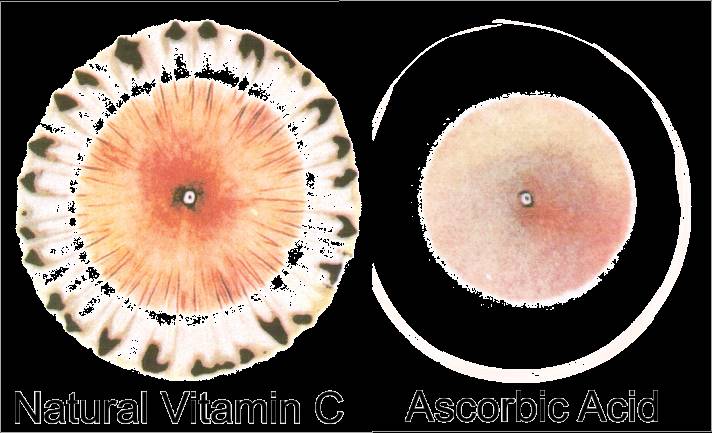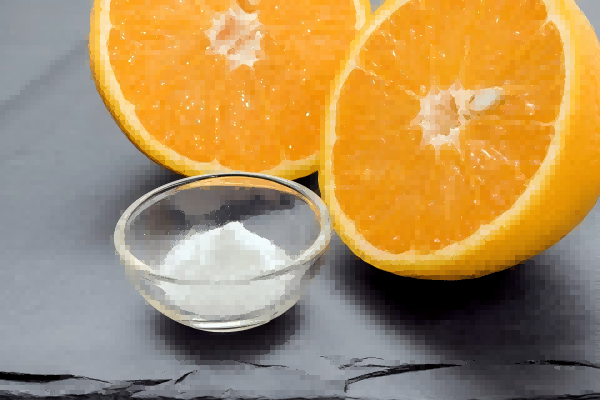When it comes to vitamin supplementation, ascorbic acid and vitamin C are often used interchangeably, leaving many people confused about whether they are the same thing or different. To clarify this, let’s dive into what each term means, their health benefits, and any potential differences between them.
What is Vitamin C?
The body’s ability to maintain healthy skin, cartilage, teeth, bone, and blood vessels is just one of its many vital functions. Additionally, it is essential for immunological response, wound healing, and iron absorption from plant-based diets.
Numerous foods and vegetables, including citrus fruits, strawberries, bell peppers, spinach, and broccoli, naturally contain vitamin C. Since the human body is unable to produce this vitamin, it must be acquired from diet or supplementation.
What is Ascorbic Acid?
It is the molecule that performs the biological functions associated with vitamin C. In nature, ascorbic acid is found in both its L- and D- forms, though the L-form is biologically active and most beneficial for humans.
Because of its antioxidant qualities, ascorbic acid is a readily accessible supplement used in the food preservation and cosmetics industries. While ascorbic acid and vitamin C are the same in terms of chemical composition and biological function, the term ascorbic acid often refers to the synthetic form of vitamin C, whereas vitamin C is a broader term encompassing both natural and synthetic sources.
The Chemical Structure: Are They Different?
Ascorbic acid and vitamin C are chemically identical in the body. However, the distinction is subtle. Ascorbic acid is typically considered the isolated or synthetic version of vitamin C, often used in supplements and fortified foods. The body absorbs this compound directly and processes it in the same way it would a naturally occurring form of vitamin C.
A major difference between ascorbic acid and whole vitamin C from food sources is the presence of bioflavonoids in the latter. These flavonoids, found in fruits and vegetables, work synergistically with ascorbic acid to enhance its absorption and effectiveness. The synthetic form of vitamin C does not contain these compounds, which may influence its effectiveness and absorption rate.

Natural vs. Synthetic Vitamin C
Natural vitamin C, typically derived from citrus fruits, berries, and other plant sources, is often considered superior to synthetic ascorbic acid due to the presence of bioflavonoids. These additional nutrients found in whole foods contribute to the overall effectiveness of vitamin C, improving its antioxidant properties and supporting overall immune health.
On the other hand, synthetic ascorbic acid has been widely studied and shown to provide the same biological activity as natural vitamin C. Since ascorbic acid is the active form of vitamin C, it performs the same functions regardless of whether it comes from natural or synthetic sources.
Differences in Absorption and Efficacy
Although both forms are absorbed by the body, natural vitamin C from food sources may be absorbed more efficiently. Bioflavonoids found in these foods can enhance vitamin C’s absorption rate, leading to more effective use in the body. In contrast, the synthetic ascorbic acid, without these additional compounds, may be absorbed at a slightly lower rate.
For example, consuming a whole orange versus a synthetic vitamin C tablet may yield different results due to the presence of flavonoids, fiber, and other compounds in the orange. However, a person’s diet, lifestyle, and overall health can all affect how much absorption differs.
| Feature | Ascorbic Acid (Synthetic) | Vitamin C (Natural) |
| Source | Synthetic (manufactured) | Natural (found in fruits, vegetables) |
| Additional Compounds | Lacks bioflavonoids, fiber | Contains bioflavonoids, fiber |
| Absorption Rate | Slightly lower | Enhanced with bioflavonoids |
| Antioxidant Properties | Effective, but may be limited | Higher, due to synergistic effects of bioflavonoids |
| Cost | Generally cheaper | Often more expensive |
Health Benefits of Vitamin C and Ascorbic Acid
Vitamin C and ascorbic acid act as antioxidants to neutralize free radicals that can harm cells. Both versions of the vitamin also play key roles in collagen synthesis, which is vital for wound healing, maintaining skin elasticity, and keeping joints healthy. Moreover, vitamin C aids in the body’s defense against infections and is vital for the immune system.
Some of the benefits of vitamin C include:
- Immune Support: Vitamin C is often used to prevent or treat colds and infections. While there’s no conclusive evidence that it prevents the common cold entirely, some studies suggest that it may reduce the severity and duration of symptoms.
- Collagen Synthesis: A vital protein called collagen keeps the skin, blood vessels, cartilage, and bones strong and structurally sound.
- Antioxidant Properties: As a powerful antioxidant, vitamin C protects the body from damage caused by free radicals and oxidative stress.
- Enhanced Iron Absorption: By improving the body’s absorption of iron from plant-based diets, vitamin C helps to maintain general health and avoid iron deficiency anemia.
- Skin Health: Vitamin C, an antioxidant, promotes skin protection and regeneration, minimizing fine lines and wrinkles to give the look of younger skin.
Recommended Daily Intake of Vitamin C
The National Institutes of Health (NIH) states that a healthy adult should consume the following amounts on average per day:
- Men: 90 mg
- Women: 75 mg
- Pregnant Women: 85 mg
- Breastfeeding Women: 120 mg
Possible Adverse Reactions to Vitamin C and Ascorbic Acid
When consumed in the proper dosages, ascorbic acid and vitamin C are both typically safe, but excessive consumption can have negative effects such as:
- Diarrhea: Excessive vitamin C intake (above 2,000 mg per day) may lead to gastrointestinal issues, including diarrhea and stomach cramps.
- Kidney Stones: High vitamin C intake may raise the risk of kidney stones, according to some research, especially in people who have a history of kidney issues.
- Iron Overload: In individuals with certain genetic conditions, excessive vitamin C may enhance iron absorption, potentially leading to iron overload.
Conclusion: Are Ascorbic Acid and Vitamin C the Same?
In essence, ascorbic acid and vitamin C are two names for the same essential nutrient. Ascorbic acid refers to the pure chemical form of the vitamin, while vitamin C is the broader term used to describe both natural and synthetic sources of this nutrient.
Both forms are highly beneficial, but there are subtle differences, primarily regarding the presence of bioflavonoids and other compounds in natural sources, which may enhance the vitamin’s absorption and efficacy. Ascorbic acid, while effective in its isolated form, might not provide the same comprehensive benefits as whole food sources of vitamin C.
Ultimately, both synthetic and natural sources of vitamin C are vital for maintaining good health. The choice between ascorbic acid supplements and natural vitamin C from foods depends on personal preferences, dietary habits, and individual health needs. Before beginning any new supplement regimen, especially at high doses, it is usually essential to see a healthcare professional.


